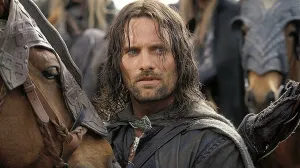It’s no secret that Netflix subscribers love twisty thrillers. Folks searching for a wild mystery finally have a new one to dissect, as the streamer debuted the cyber-thriller series Clickbait on Wednesday. The eight-episode limited series follows the story of a family man named Nick Brewer, who appears in an online viral video that claims he will be killed if it reaches five millions views. While the series makes you question whether or not Nick is an innocent man himself, the final episode delivers a twist about the “mastermind” behind the crime that absolutely no one sees coming.
Videos by ComicBook.com
WARNING: This article contains MAJOR spoilers for Netflix’s Clickbait! Continue reading at your own risk…
In the second episode, it is revealed that Nick is actually dead, but the story is far from over. Nick was set up to be an online predator of sorts, meeting several different women on dating sites, starting relationships with them, and leading them on while still having his own family. This is why he was kidnapped in the first place, as one of the women committed suicide following her relationship with Nick and her brother wanted revenge. However, the woman’s brother didn’t kill Nick because he wasn’t the one behind the profiles. It was a catfish situation the entire time.
Dawn, who worked on the computers in Nick’s physical therapy office, was behind the entire thing. She was bored and used all of Nick’s personal information at her disposal to create fake dating personas online. After Nick escaped his kidnappers, he went to Dawn’s house because he knew she was the only one with certain access to his private information. In order to keep his wife from getting in trouble, Dawn’s husband, Ed, killed Nick.
This ending is shocking not only because it takes multiple twists through its catfishing journey, but also because Ed is a character that isn’t even introduced until the finale. Following the show’s debut, creator Tony Ayes spoke with EW about the surprising conclusion.
“It was in the research. It was the stories of women who were stealing male identities and catfishing women and romancing them,” Ayes said. “And it was never really clear, sometimes they were lesbians but sometimes they said it was out of boredom, sometimes it was out of isolation. A couple of these women were married. It was just such an unusual thing. When I was trying to understand it and unpack it, I was drawn to the idea of a woman who feels completely invisible. Who Dawn is makes her invisible: she’s an older woman, lower middle class, working class, she is not someone that anyone would look at twice, and yet she craved to be seen. As a gay Asian man, I kind of feel like Dawn whenever I go to a gay bar. [Laughs] Gay bars are basically places where status is so important. I kind of related to being invisible and I thought that was such an interesting story to tell. She wanted to just feel visible, and she wanted to be seen by women, interestingly, because women were probably more engaged in the romantic fantasy that she wants to engage in.”
Ayes also went on to say that he knows the ending will be controversial, but he stands by the decisions the creative team made to conclude it where they did.
“I mean, you always want people to like you and to like your work,” he explained. “But no, I think it’s better to do something like that because there’s so much content in the world. I would stand by why we did it and what we have to say in doing it. The key to this format is it gives us an opportunity to really get in the skin of the characters and to understand why people do what they do. I think that there is something interesting and valid in talking about the invisibility of older women. I think there’s something interesting about why Dawn does it. But I’ve got my bike helmet on, so I’m ready for the response.”
What did you think of Netflix’s Clickbait? Did you expect an ending that crazy? Let us know in the comments!








